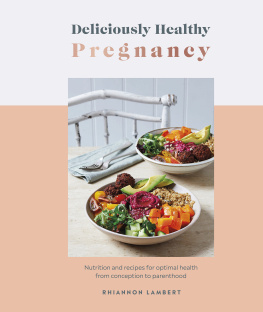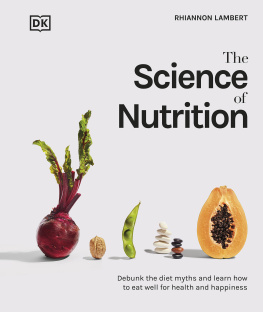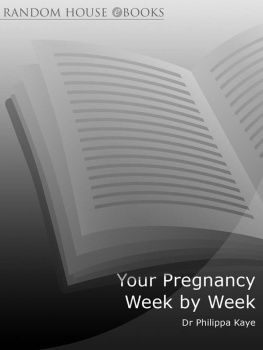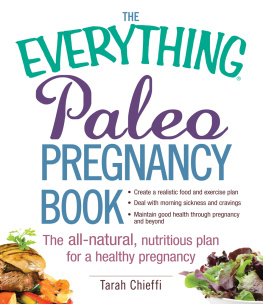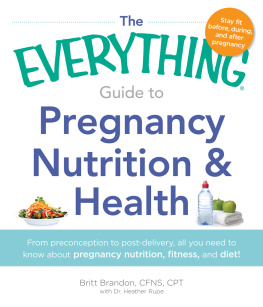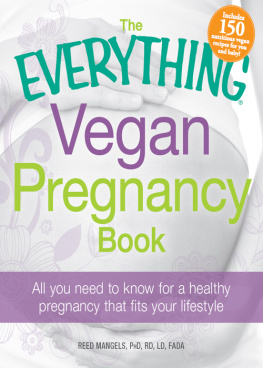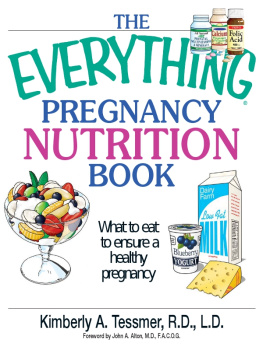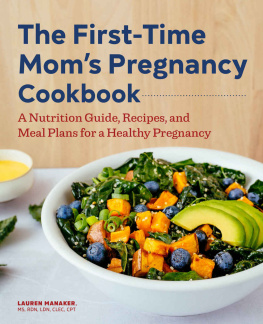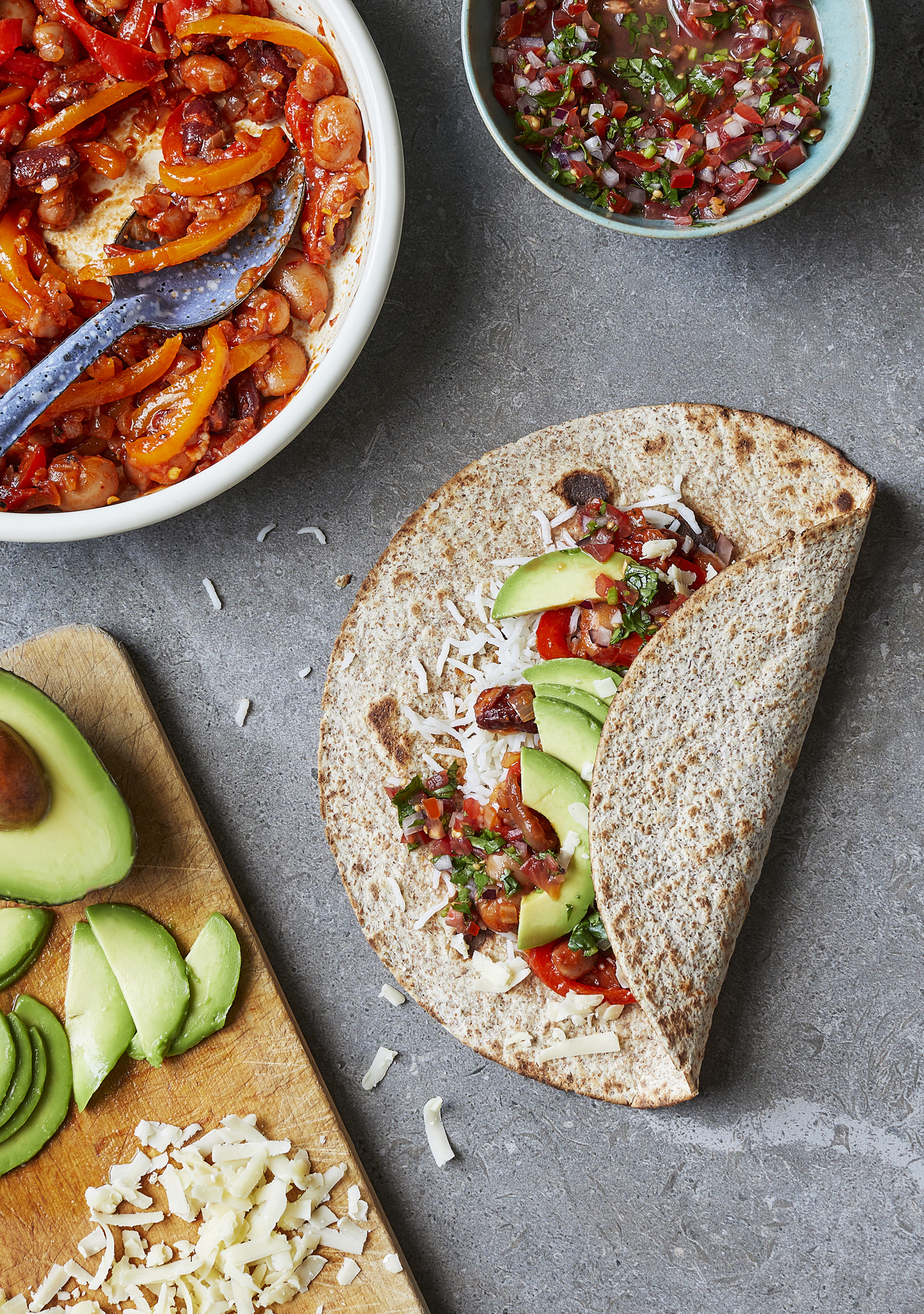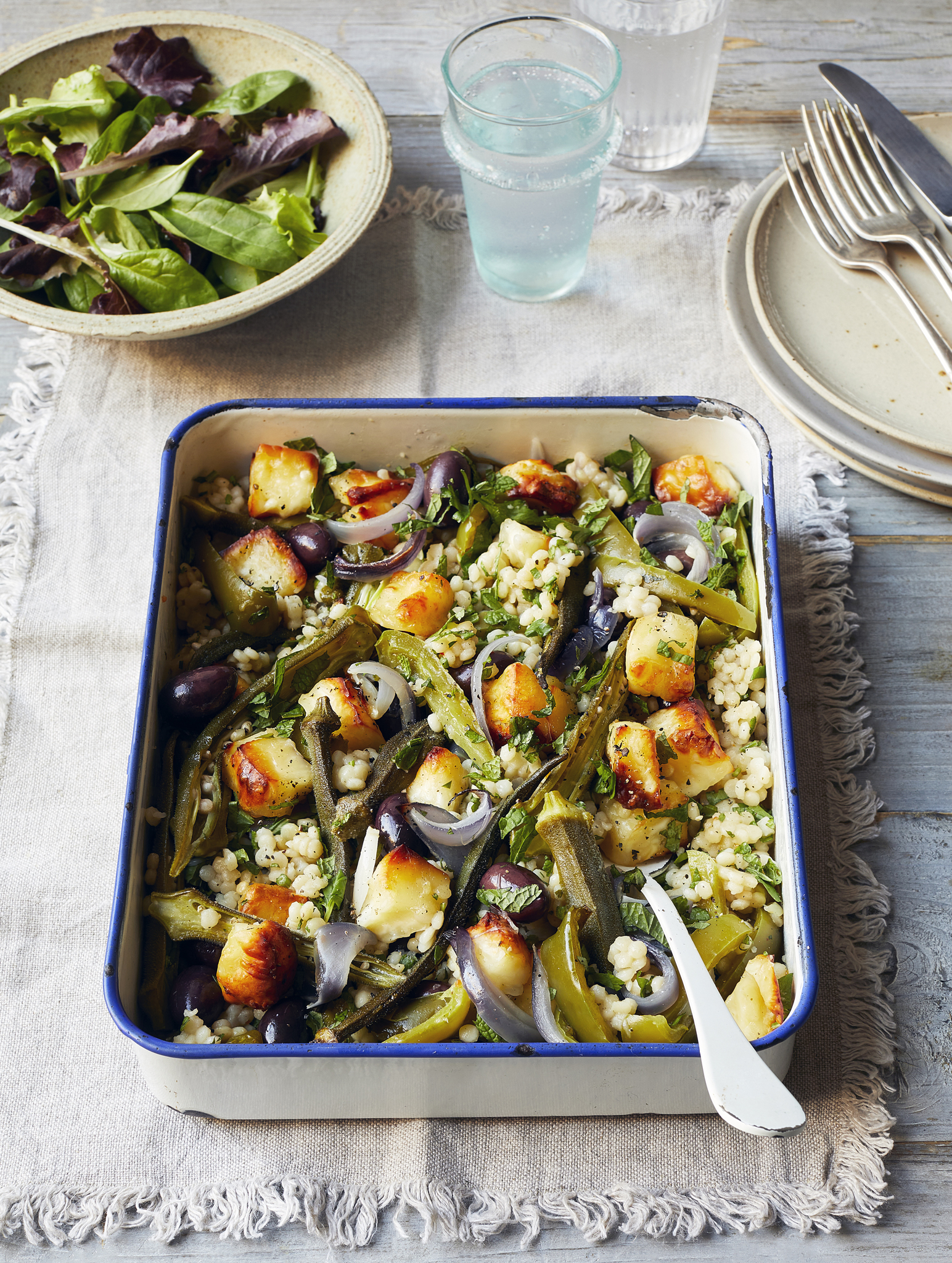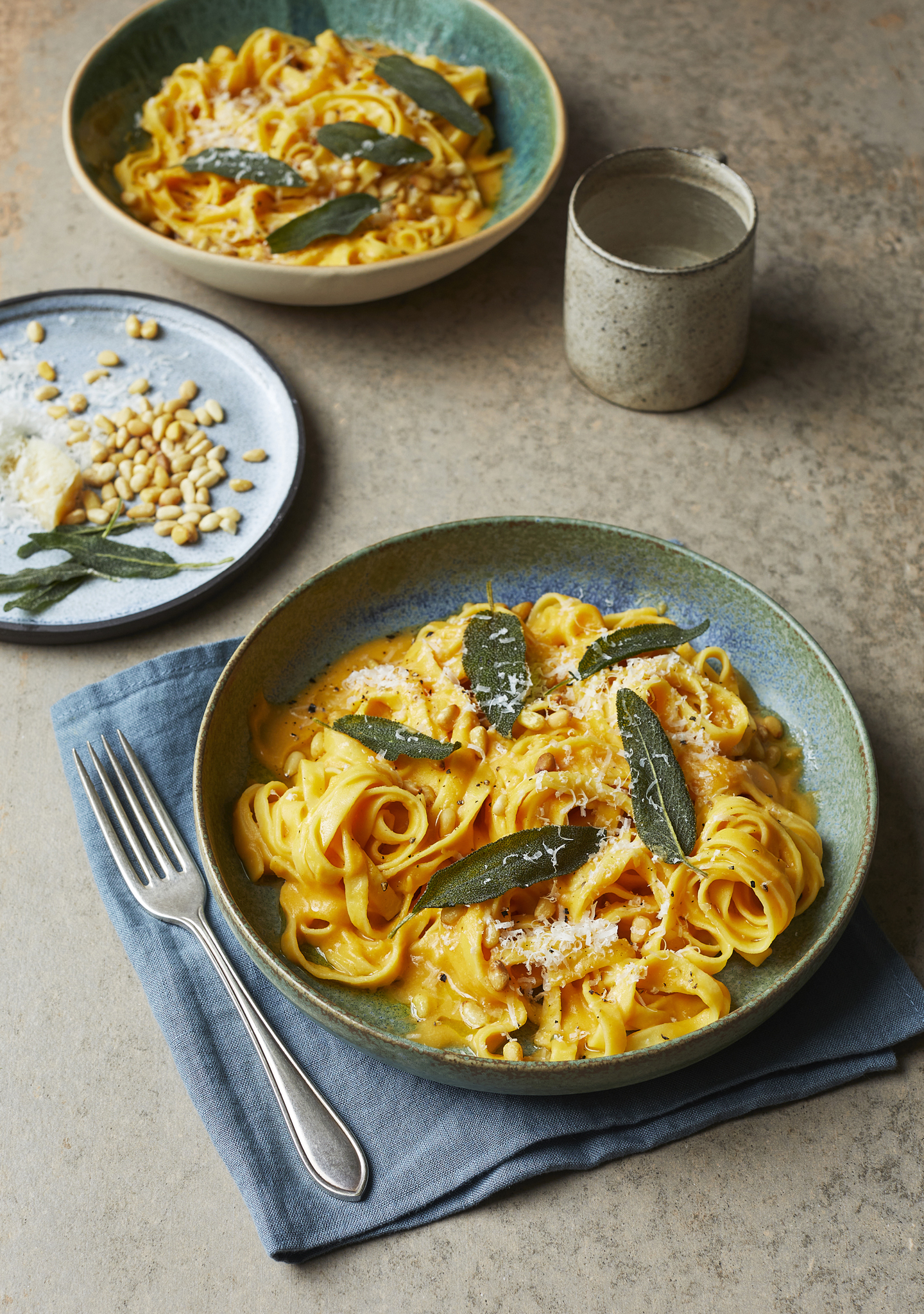Contents
g
How to use this eBook
Preferred application settings
For the best reading experience, the following application settings are recommended:
- Orientation: Portrait
- Color theme: White background
- Scrolling view: [OFF]
- Text alignment: Auto-justification [OFF](if the eBook reader has this feature)
- Auto-hyphenation: [OFF](if the eBook reader has this feature)
- Font style: Publisher default setting [ON](if the eBook reader has this feature)
- In Settings, change the font sizeto a size you are most comfortable with.
- Double-tap images in the book to open images to full screen and to be able to zoom-in and see details clearly.
g
Preface
After falling pregnant with my first child, it became apparent that there wasnt much information available from nutritionists such as myself to guide us new mums-to-be through pregnancy. Right from the get-go, dangerously, the internet becomes your best friend, but its hard to find much lifestyle and nutritional advice beyond what food and drink to avoid and a warning to not put on too much weight.
Before I became pregnant, I recorded an episode on fertility for my podcast Food For Thought after hearing the stats on how long it can take to get pregnant; the fact that its just as much a mans responsibility as a womans; and that there really never is the perfect time to get pregnant. That was the defining moment when I decided to try for a baby. I recall Dr Zoe Williams, ITVs media doctor, saying there was no harm in getting pregnant before your wedding and that, in fact, having your baby with you on your wedding day was pretty special. As it turned out, I walked down the aisle eight weeks pregnant and gave birth in the peak of a global pandemic, not quite the fairytale I had hoped for.
I became fascinated by the world of antenatal, pregnancy, and postnatal nutrition. I enrolled in a university course and immersed myself in this little-discussed area. Managing a difficult pregnancy, working full-time running my clinic, then experiencing a traumatic birth meant this wasnt a perfect time, but it taught me a lot of life lessons. My career as a nutritionist truly helped me navigate this period, from preconception, through the trimesters, to recovering after the birth and starting on my breastfeeding journey. I yearned for an evidence-based book like this and I couldnt find one. Now, pregnant with my second baby and in the midst of nausea, I hope I can help you understand the role of nutrition in your pregnancy. I hope you wont need to trawl through endless online searches looking for advice. Instead you will be able to turn to this book thats full of information rooted in evidence that you can trust, alongside delicious recipes, to help you make it through those amazing, yet challenging, times of pregnancy and new motherhood.
I want to offer women the truth about nutrition in pregnancy. We all know that we need to eat well to help our babies grow, but good intentions can be hard to keep. Nausea, acid reflux, pain, discomfort, and an ever-increasing or decreasing appetite can all mean that pregnancy is not an easy journey. You may find you cant face a variety of foods, or are too worn out to spend much time cooking. As a health professional, I dont wish to preach the perfect pregnancy diet. I hope to inspire you, but also be a comfort and guiding hand. In the first section of this book, I explore how the food you eat and your amazing body supports the growth of your baby. The second part of the book has a range of delicious recipes, ideal for pregnancy, with offering suggestions on which recipes can help you to combat the trials and tribulations of a particular trimester. I also havent forgotten that you will be experiencing one of the most scary, exhilarating, and momentous moments of your life birthing your child. The benefits of good nutrition dont end at this moment, they continue to aid you through the fourth trimester, the 12 weeks after the birth, a time when you need to heal and feed yourself and your baby. Here, you can choose simple recipes that can be rustled up easily with your baby in a sling or while asleep in their crib. All thats left for me to say is a huge congratulations and enjoy the delicious read ahead.

@rhitrition
g
Living well for pregnancy and life
The food we eat and how we live impacts our health throughout life. This section sets out some highly researched ways of eating known to support health and happiness, exploring the benefits of a Mediterranean and plant-based approach; looks at how your body changes as your baby grows in pregnancy; and offers tailored nutritional and lifestyle advice to nurture you and your baby.
Living well for pregnancy and life | Contents
g
A Mediterranean approach
The Mediterranean diet originates from the olive-growing areas of this region. A focus on local, in-season ingredients matched with an active, outdoors lifestyle, has seen this way of life widely regarded as one of the healthiest worldwide. Adopting the diets principles, or those of the closely aligned (not to be confused with vegan) diet, has benefits throughout life and helps optimize the health of you and your baby in pregnancy.
A common focus
The Mediterranean way of eating varies from region to region, incorporating traditions from different countries, but each region has some common core principles. Generally, the diet is high in vegetables, fruits, pulses and beans, nuts, cereals, grains, fish, and unsaturated fats such as olive oil, and is low in saturated fats. An emphasis on freshness means foods are high in antioxidants and other important nutritional components such as fibre. While its important to eat in a way that suits your cultural background and lifestyle, incorporating some components of a Mediterranean diet into your own will enable you to enjoy its many benefits.
How the Mediterranean diet enhances health
Extensive, up-to-date research shows that the Mediterranean way of eating and its lifestyle has many important benefits for our health. At times when the quality of our nutritional intake is particularly key, such as during pregnancy, following this eating model is especially helpful.
- It supports our heart health . A range of evidence suggests that the Mediterranean diet can reduce the risk of developing cardiovascular disease. One landmark study showed that this way of eating lowered the incidence of serious cardiovascular incidents. This is likely to be thanks to the focus on wholegrain carbohydrates and eating fewer animal products, which in turn reduces bad cholesterol lipids, called low-density lipoproteins (LDLs), associated with cardiovascular disease. The diet is also rich in polyunsaturated and monounsaturated fatty acids and fibrous foods, all linked to improved heart health. Overall, eating a Mediterranean-style diet is associated with healthy weight management and lower blood pressure.

